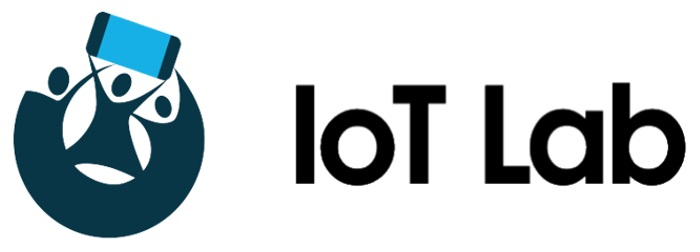Conference on SLICES Pan-European Research Infrastructure for Digital Innovation & Transformation – Swiss Cluster Event

Date: Oct 6 2022, 10-16 CET
Would you like to discover…
- How to access to the largest European research infrastructure for your research?
- How researchers can join and take part in research cooperation?
- New opportunities for researchers to collaborate with European peers?
- Innovative research infrastructure for future technologies?
- How to reinforce collaboration at the national and European level through the SLICES initiative?
SLICES is a flexible platform designed to support large-scale, experimental research focused on networking protocols, radio technologies, services, data collection, parallel and distributed computing and in particular cloud and edge-based computing architectures and services.
The SLICES H2020 project is delighted to invite you to a one-day online Workshop on the SLICES Pan-European Infrastructure for ICT on October 6, 2022 from 10-16 CET.
Join us, and be part of the discussion!
Agenda
10:00 SLICES PAN-EUROPEAN RESEARCH INFRASTRUCTURE FOR ICT OVERVIEW
- Sébastien Ziegler, President of IoT Lab and IoT Forum
- Serge Fdida, Sorbonne University
- Anna Fill, Swiss State Secretariat for Education, Research and Innovation
- Elena Hoffert, French Ministry of Superior Education and Research
- Ana Proykova, Chair of DIGIT Group, European Strategy Forum on Research Infrastructures (ESFRI)
11:00 NEW FRONTIERS FOR RESEARCH
Some scientific challenges addressed by SLICES
- Anna Brékine, IoT Lab
- Ari Pouttu, Oulu University
- Bartosz Belter, Poznan Supercomputing and Networking Center
- Andrea Passarella, Institute for informatics and telematics (IIT) – CNR
- Yuri Demchenko, University of Amsterdam
12:00 MUTUALISING AND SHARING RESEARCH INFRASTRUCTURES
- Anna Brékine, IoT Lab
- Brecht Vermeulen, IMEC
- Cédric Crettaz, Mandat International
12:30 Lunch break
14:00 RESEARCH INFRASTRUCTURES PERSPECTIVES AND OPPORTUNITIES
Research Infrastructures Overview
- Bernhard Plattner, Prof. em., ETH Zürich
- Dimitri Konstantas
Automated public transportation : The Geneva Living Lab
One of the key applications and usages of smart-city IoT infrastructure is in the area of mobility with connected and automated vehicles. In this direction, since 2018 and under the H2020 AVENUE project, we have developed in Geneva, with the TPG, a living lab at Belle-Idee for the deployment of fully automated mini-shuttles. During the AVENUE project, we identified the missing blocks and requirements from city infrastructure for a safe and optimized deployment of fully automate public transportation services.
As of October 1st, in the frame of the ULTIMO project (a 4 year, 23 partners, 40 M€ funded Horizon Europe project with 3 European sites) we deploy 15 automated mini-shuttles in Geneva, installing the required infrastructure for the optimal service deployment, linked with in-vehicle IoT devices for passenger and vehicle services.
The living lab will be available for testing new technologies not only in the domain of mobility, but for other types of services and applications.
- Gustavo Alonso
The role of hardware in modern infrastructures
Information and Communication technologies are not above the need to improve the energy of our infrastructure. In this short talk I will briefly discuss the role that near-data processing and its embedding on the network can play in making large scale data processing more efficient in terms of both latency, throughput but also energy consumption and resource utilization.
- Jan Kerschgens
The EPFL Center for Intelligent Systems, CIS, ML-AI-robotics
The EPFL Center for Intelligent Systems brings together researchers working on various aspects of creating intelligent systems. Since its inception in October 2019, four integrative research pillars were launched: “AI for Medicine”, “Intelligent Assistive Robotics”, “Decentralized edge AI Infrastructure” and “Digital Twin”. Through its work and contacts, the CIS integrates EPFL into European and international research and excellence networks.
With my talk I would like to inform about activities of the EPFL Center for Intelligent Systems (ML-AI-robotics). During our discussion I would like to learn about how we could contribute and potentially create synergies with SLICES.
- Juerg Leuthold
The Swiss Alps - a Ideal Place to Test next Generation Tbit/s GEO-Sateellite Feeder Links
Assessments on the feasability of the world’s first 1 Tbit/s GEO-satellite feeder link has recently been performed. A laser link was set up and a high-capacity signal was sent from the Jungraujoch high-altitude research station to the Zimmerwald Observatory in Bern. The complex terrain with high altitude winds, lakes and lowlands near a city was found to be ideal to mimic GEO-satellite links in demanding environments. In this talk we will report on the challenges in setting up demanding transmission experiments that require the exertise and concerted effort of multiple labs with their equipment and skills.
- Laurent Sciboz
The opportunities and risks of a holistic approach to the continuous association of Compute - Storage - Network resources
Developing a holistic approach where all resources (compute, storage, network) must be associated to a design that takes into account the risks inherent to centralization which is itself decentralized in the Cloud. These risks are notably linked to unplanned power shortages in locations far from the user of the resources. Software and Information systems in the eHealth domain will help to better understand this resilience issue that must be carefully considered.
15:00 THE WAY FORWARD AND ACTION PLAN
Joining the community and panel discussion on priority actions
- Sébastien Ziegler, Mandat International
- Serge Fdida, Sorbonne University
- Bernhard Plattner, ETH Zürich
- Anna Brékine, IoT Lab
- Dimitri Konstantas, University of Geneva
- Jan Kerschgens, EPFL Center for Intelligent Systems
15:45 CONCLUSION AND NEXT STEPS
16:00 End
